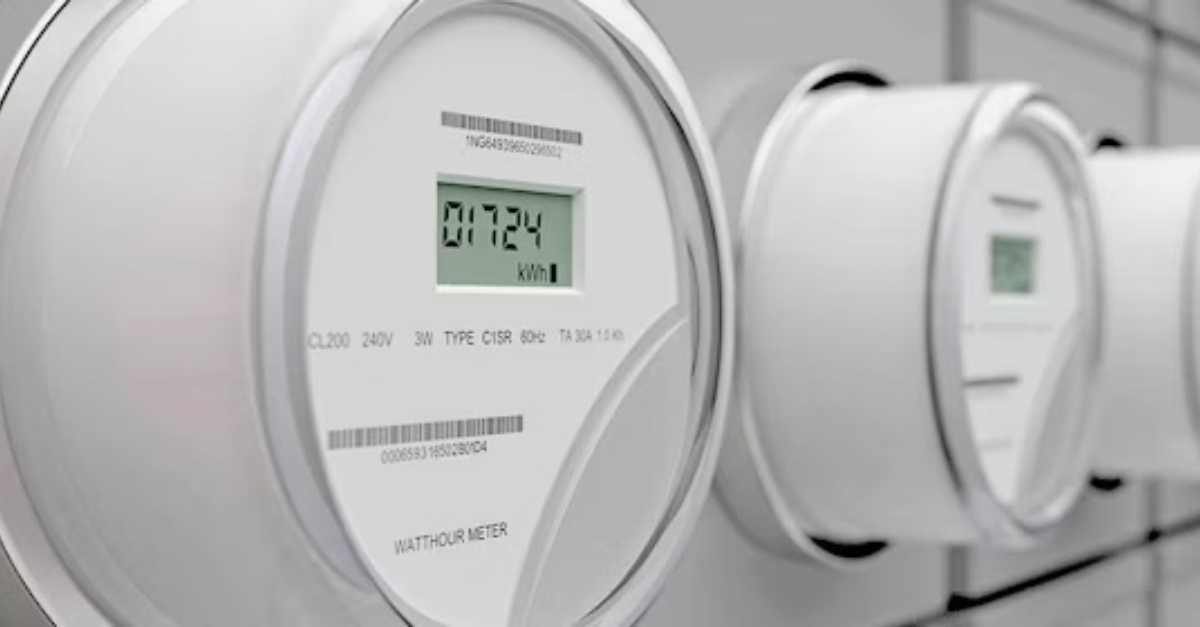
What is an Energy Management System (EMS)?
Discover how energy management systems enhance energy monitoring, conservation, and budgeting, while boosting sustainability efforts in your ...
Solutions
Workplace Management Solutions
Real Estate Management Solutions
Maintenance Management Solutions
Energy Management Solutions
Engineering Document Management Solutions
Asset Management Solutions
Automate campus scheduling for classes, meetings, and exams with our EMS software.
Plan and manage conferences effortlessly with EMS software to impress guests and streamline operations.
Boost workplace flexibility and maximize space use with seamless desk and room booking.
Organize workplace or campus events smoothly, creating memorable experiences.
Optimize workspace, manage allocations efficiently, and reduce costs with our space management solutions.
Deliver projects on time and within budget by improving communication, collaboration, and efficiency with our software.
Streamline lease accounting for ASC 842, IFRS, and GASB compliance.
Manage leases efficiently by tracking key dates, analyzing costs, and ensuring compliance.
Centralize data and analytics for better insights, faster negotiations, and revenue growth.
Centralize facility and asset maintenance, automate work orders, and ensure compliance with our CMMS software.
Extend asset life, reduce downtime, and prevent costly repairs with data-driven monitoring.
Prevent equipment failures and extend asset life by detecting and addressing issues early.
Make sustainable, cost-efficient energy decisions by monitoring and optimizing power consumption.
Remotely monitor and control equipment with real-time data to predict issues, boost efficiency, and reduce downtime.
Easily share and collaborate on documents, creating a single source of truth for engineers and contractors.
Manage and analyze assets across their lifecycle to schedule maintenance, reduce downtime, and extend lifespan.
Improve visibility, automate work orders, and ensure compliance for efficient facility and asset management.
Resources
Browse our full library of resources all in one place, including webinars, whitepapers, podcast episodes, and more.
Support
Looking for access to technical support, best practices, helpful videos, or training tools? You’ve come to the right place.
About Accruent
Get the latest information on Accruent, our solutions, events, and the company at large.

Learn how the latest Federal Metering Guidance aims to promote energy efficiency and reduce energy waste in federal buildings and vehicles.
Energy consumption is becoming an increasingly important topic for organizations today, particularly as ambitious net zero targets and rising energy costs put mounting pressure on companies to optimize operations and decrease unnecessary consumption. To help, the Department of Energy (DOE) recently released the latest Federal Metering Guidance, which provides best practices for metering energy consumption and production in federal buildings.
Though this guidance is aimed specifically at federal buildings, it can be utilized by all organizations that want to improve their energy efficiency, reduce energy costs, decrease energy waste, and contribute to a sustainable energy future.
Here’s everything you should know about these new policies and how to meet the latest metering guidelines.
The U.S. Department of Energy is required by the Energy Policy Act of 2005 to establish guidelines for agencies to meter their federal buildings for energy – including electricity, natural gas, and steam – and water use. To help agencies meet their metering requirements, the Federal Energy Management Program (FEMP) provides guidance, templates, best practices, and more.
The Federal Metering Guidance (Per Energy Act of 2020, Sec. 1002(g)) October 2022 update replaces the November 2014 guidance and provides the framework for federal agencies to establish and implement comprehensive and consistent metering practices for their energy consumption.
The key elements included in this guidance are:
Meeting the metering guidance is important for several reasons. First, metering energy usage is essential for agencies to understand how much energy they are consuming, which helps them identify areas where they can reduce energy usage and costs. Additionally, having accurate and reliable metering data provides agencies with the information they need to make informed decisions about energy management and conservation.
There Are Roadblocks
That said, despite the importance of meeting the metering guidance, there are several common roadblocks that agencies face. One of the biggest challenges is the age of the building, as older buildings often lack the necessary infrastructure to support modern metering systems. Another common roadblock is a lack of budget or resources to upgrade or install new metering systems, as well as lack of resources to focus on these initiatives.
There are many important takeaways that organizations can take from the latest guidance. Specifically, organizations looking to optimize energy consumption can and should:
Implement Comprehensive Energy Management Programs
One of the key components of the DOE's latest federal metering guidance is the requirement for organizations to implement a comprehensive energy management program. This program should include regular monitoring and analysis of energy consumption, as well as the development and implementation of strategies to reduce energy waste.
The DOE also recommends the use of advanced metering technologies like Accruent Observe for Energy Management to provide more detailed and accurate data on energy consumption.
Establish Clear Energy Goals and Targets
Another important aspect of the DOE's latest federal metering guidance is the requirement for organizations to establish clear goals and targets for energy efficiency. The guidance suggests setting achievable, measurable, and time-bound goals for reducing energy waste, as well as tracking progress towards these goals using regular reporting and analysis. This information can be used to identify areas for improvement and to adjust energy management strategies as needed.
Adopt a Continuous Improvement Approach to Energy Management
The DOE also recommends that organizations adopt a continuous improvement approach to energy management, which involves regularly reviewing and refining energy management strategies in response to changes in the business environment, new technologies, and shifting energy market conditions.
Specifically, this approach can include the implementation of new technologies – like robust IoT solutions – that allow teams to act as soon as an energy demand response is needed. Such solutions remove the dependence on human interaction to correct energy usage and allow for a more proactive approach to the problem. This can ultimately help organizations stay ahead of the curve, stay on top of the latest developments in energy management, and make the most of new opportunities to save energy and reduce costs.
The right technology can make all the difference here. Specifically, an advanced metering system like Accruent Observe for Energy Management can be retrofitted into older buildings to provide accurate and reliable metering data.
Furthermore, it can be used to help agencies analyze and manage their energy usage, making it easier for them to meet the DOE's metering guidance. And that’s just the tip of the iceberg.
By following these steps and implementing the right technology, organizations can ensure that they meet the latest federal metering guidance from the DOE and make the most of opportunities to improve their energy efficiency, reduce energy costs, and contribute to a sustainable energy future.
Discover how energy management systems enhance energy monitoring, conservation, and budgeting, while boosting sustainability efforts in your ...
This blog explores the importance of energy management and the role it plays in making our existing building stock more energy efficient
Learn how businesses optimize efficiency, reduce costs, and embrace sustainability for a greener future with energy management.
Subscribe to stay up to date with our latest news, resources and best practices.
* To unsubscribe at any time, please use the “Unsubscribe” link included in the footer of our emails.